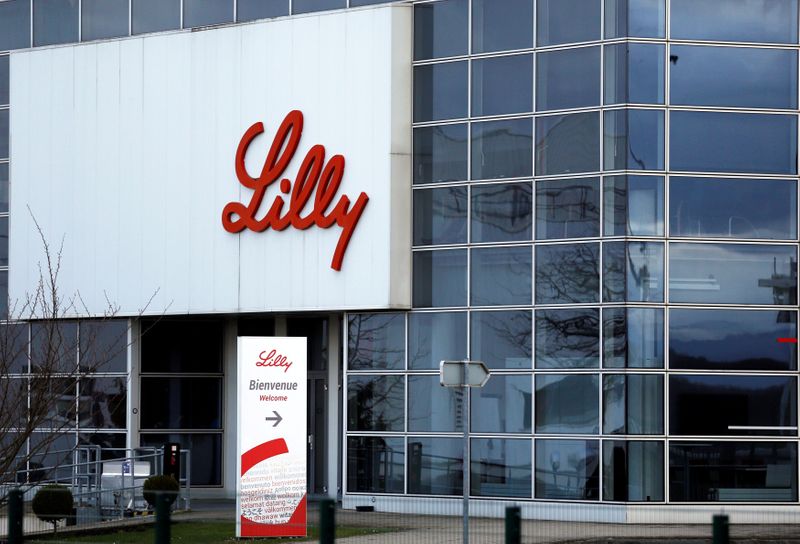By Michael Erman
(Reuters) - U.S. drugmaker Eli Lilly & Co (N:LLY) is beginning a late-stage trial to study whether one of its experimental COVID-19 antibody treatments can prevent the spread of the virus in residents and staff at U.S. nursing homes, it said on Monday.
The phase 3 trial will test LY-CoV555, a treatment developed in partnership with Canadian biotech company AbCellera, is expected to enroll up to 2,400 participants who live or work at a facility that has had a recently diagnosed case of COVID-19.
"COVID-19 has had a devastating impact on nursing home residents," Eli Lilly's chief scientific officer, Daniel Skovronsky, said in a statement. "We’re working as fast as we can to create medicines that might stop the spread of the virus to these vulnerable individuals."
Shares in the company rose 2.5% in premarket trading.
The drug is already being tested in hospitals to study whether it can work as a treatment in patients who have the disease. This trial will test whether it works prophylactically.
The phase 3 nursing homes trial is being conducted in partnership with several long-term care networks across the country as well as the U.S. National Institute of Allergy and Infectious Diseases (NIAID).
To speed the study, Eli Lilly has created mobile research units including retrofitted recreational vehicles that can be deployed in response to coronavirus outbreaks at nursing homes across the U.S.
LY-CoV555 belongs to a class of treatments known as monoclonal antibodies, which are among the most widely used biotechnology medicines. Regeneron Pharmaceuticals Inc (O:REGN) and other drugmakers are testing similar treatments against COVID-19.

Last week Lilly told investors that LY-CoV555 had moved into mid-stage trials as a treatment and that late-stage trials would begin in the coming weeks. It expects efficacy data from the mid-stage trial in the fourth quarter.